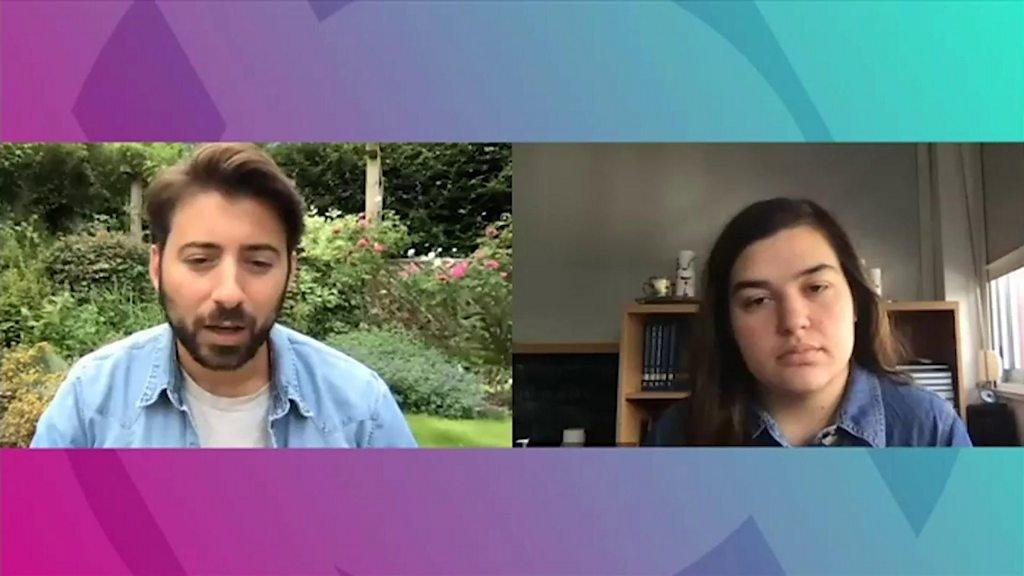Afghanistan: What is the government doing to support refugees arriving in the UK?
- Published
- comments
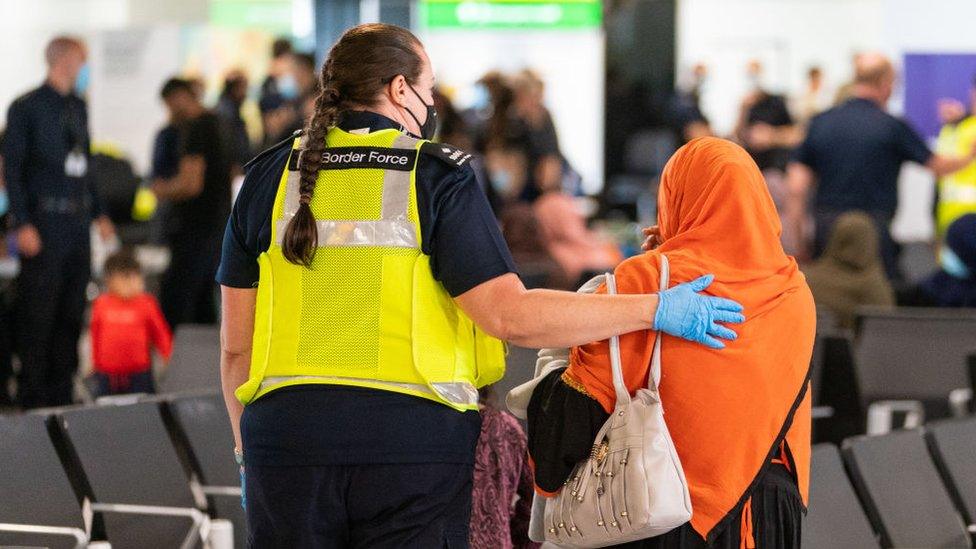
Around 15,000 people were evacuated from Afghanistan by the UK
Around 15,000 people were evacuated from Afghanistan by the UK after the Taliban seized control of the country last month.
Both US and UK troops have now left the country after 20 years of military involvement.
Those who were evacuated from Afghanistan included 5,000 British nationals and more than 8,000 Afghans who worked for the UK, their families and people considered at risk from the Taliban.
The UK government has introduced what it has called 'Operation Warm Welcome' to help the Afghan refugees arriving here.
Government ministers say it will provide support to help them "rebuild their lives, find work, pursue education and integrate into their local communities".
"Operation Warm Welcome is a huge effort across government to make sure that those fleeing Afghanistan are able to make a success of a new life in the UK," said Afghan Resettlement Minister Victoria Atkins.
"The stability of indefinite leave, the security of access to healthcare and the opportunity of education are the foundation upon which those resettled to the UK can build."
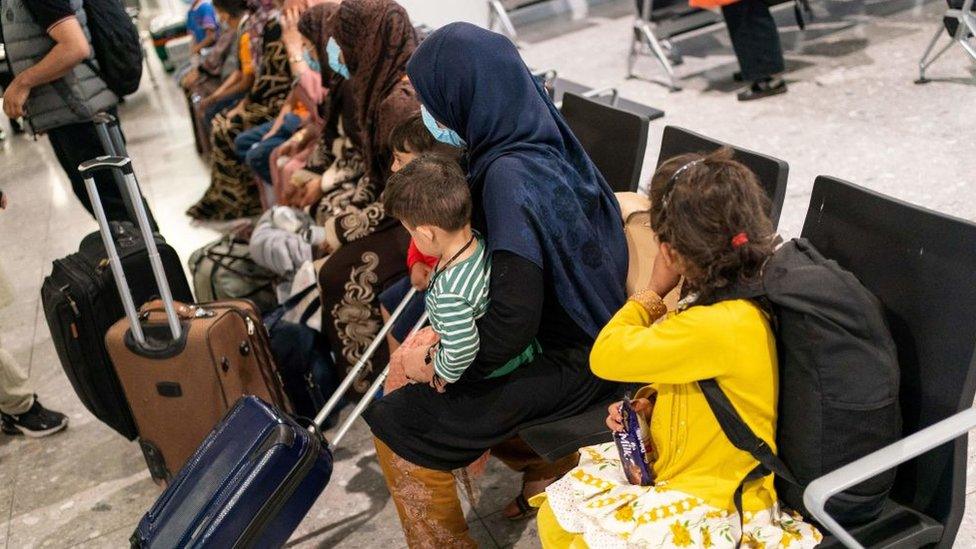
The government is looking to councils to help house Afghan refugees
On Wednesday, The Home Office, which is the government department that deals with people coming to live in the UK, announced that Afghan refugees who worked for the British military and UK government will be able to live in the UK permanently.
The government has said it will provide:
£12 million to help enrol children in schools and to also provide other support for learning
£3 million for the NHS so families can access healthcare and register with a GP
£5 million to help out councils across the UK in providing housing support
Funding for up to 300 scholarships for Afghans at UK universities. Adults will also be able to access English language courses free of charge
An online portal for members of the public to register offers of support, such as jobs, accommodation and donations of clothing and toys
What happens next for refugees in the UK?
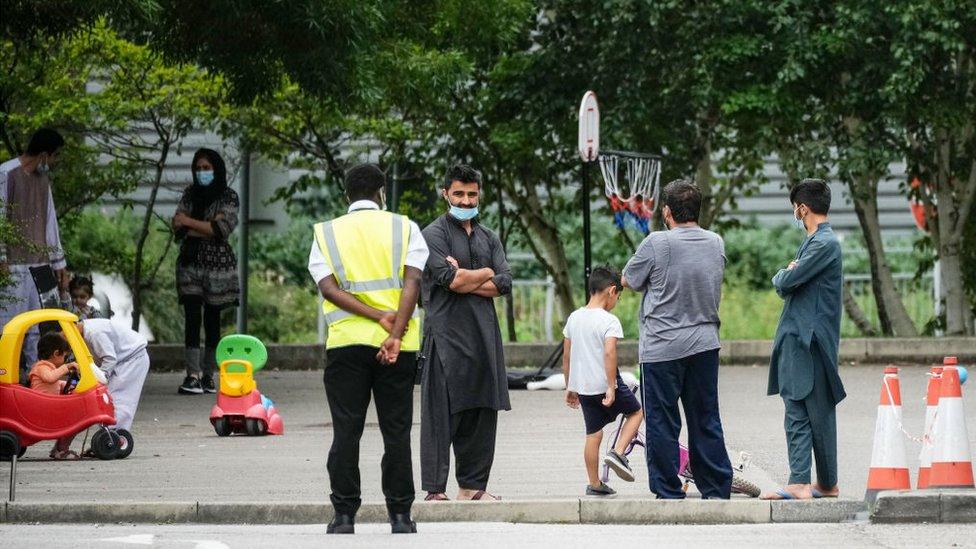
Many Afghan families are believed to be staying in hotels and quarantining while local authorities find them longer-term housing
The government is now talking to councils about how many Afghans could be resettled in their local areas. It says there should be a fair distribution across the country.
The Home Office is looking for support from councils who can show they have homes available for Afghan families and some councils are already putting plans in place to help house refugees.
Ashford Borough Council in Kent already had experience of resettling Syrian refugees in a government programme which ran from 2015 and it says it intends to take up to 10 Afghan families.
Walsall Council in the West Midlands has taken in 69 evacuees so far and says it hopes to house up to 120.
However, some councils have said they no longer own any properties which can be used to house Afghan families. Others feel it would be unfair to offer homes to the refugees ahead of local people who are on housing waiting lists.
In some of these areas, councils are looking to encourage private landlords to offer suitable accommodation for Afghan families.
Some local councils have also decided they won't be able to resettle any Afghans.
In Norfolk, councils have agreed among themselves that not all the local authorities will take in Afghans - with three councils in Greater Norwich being chosen as the best placed to offer support to new arrivals.
What else has been said?
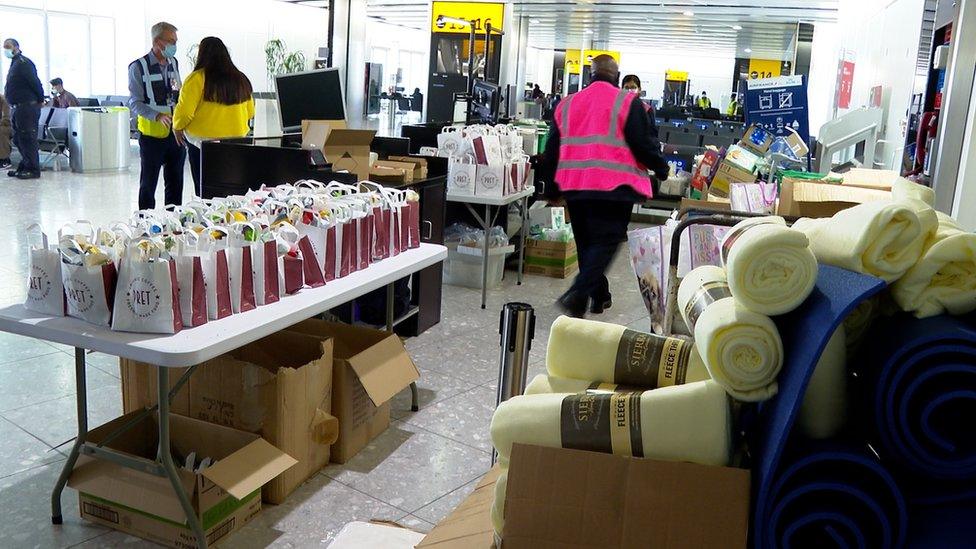
Care packages: Food and blankets at the ready
A leaked document seen by the BBC suggests the Treasury, which is the government department that oversees spending, must "urgently" confirm extra funding before councils can start making offers to house Afghan refugees.
The government intends to provide funding to local authorities to accommodate Afghans. The document estimates the cost of helping those coming to the UK over the next 10 years could be more than £2.5bn.
The leaked document was discussed by ministers on Wednesday. It says that so far, just under £400m has been provided to help resettle those who have fled Afghanistan, but an extra £557m could be needed over the next three years.
Ministers will meet gain on Friday to discuss an update on the costs of rehousing.
- Published29 August 2021
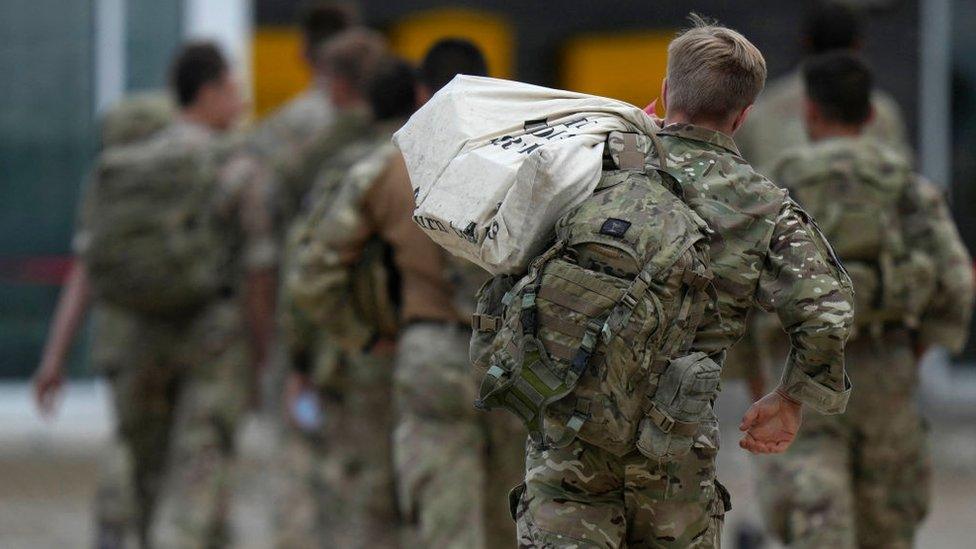
- Published31 August 2021
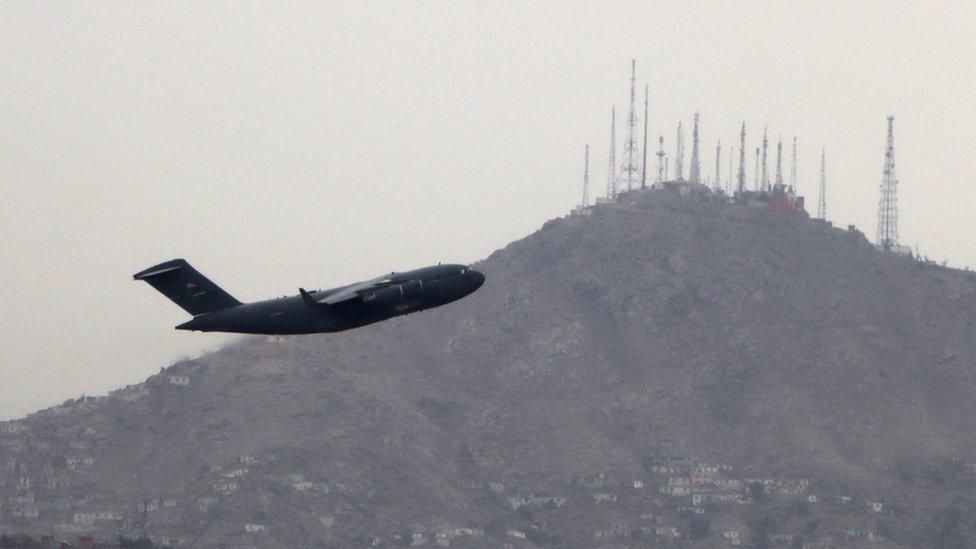
- Published20 August 2021
